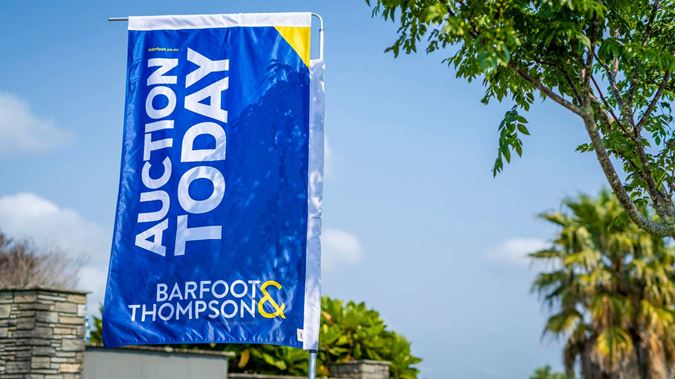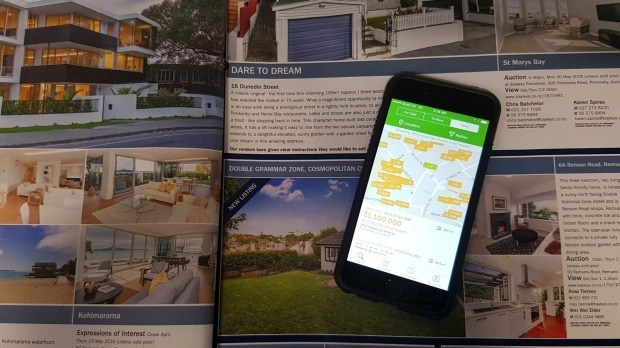PHOTO: Trade Me Property
The Government’s announcement of the COVID-19 alert level 4 lockdown made waves across New Zealand’s property market last month, according to the latest Trade Me Property Price Index.
Head of Trade Me Property, Nigel Jeffries, said while it is too early to assess its full impact, the ripple effect of COVID-19 is already being felt far and wide across the New Zealand housing market. “There is no denying that the market is experiencing some significant changes, with economists and Governments alike predicting a worldwide recession.”
House prices haven’t yet seen any impact, but Mr Jeffries acknowledged that it would take time for any fluctuations in price to become apparent. “We calculate our average asking price on a three-month rolling average, so any trends in prices will take some time to appear.”

Auckland & NZ hit record median prices before COVID-19 hit, says REINZ
However, Mr Jeffries said the 2008/9 Global Financial Crisis offers some insight into how a worldwide recession may impact local property prices. “The 2008 GFC saw New Zealand’s property prices fall 7 per cent. In saying that,after months of strong demand and property prices growing by a third in the past 5 years,we are in a better position than in 2008 and expect the impact to be less significant this time around.”
Mr Jeffries said following news of the level 4 lockdown restrictions there was a dip in the number of new listings onsite. “As uncertainty rippled across the country following the Government’s announcement that we were moving to level 4, we saw an 18 per cent drop in the number of new property listings in March when compared to the year prior.”
But looking at the number of current listings onsite, Mr Jeffries said it is not all doom and gloom. “On a positive note, when we look at the number of listings onsite at the end of February in comparison to now, the drop in the number of properties for sale has been less than 1 per cent as many sellers wait and see how the next few weeks pan out.”
Listing views bounce back
During the first week of alert level 4, there was a dip in the number of people browsing property onsite, but Mr Jeffries said this has since bounced back. “In the first week of level 4 we experienced a 21 per cent drop in views nationwide. However, these numbers have bounced back considerably and in the last week we have seen just a 2 per cent dip in the total number of views when compared to pre-announcement figures.”
Many Kiwis used their extra time over the long weekend to browse property listing onsite. “Listing views spiked dramatically over the Easter break and we actually saw 3 per cent more views on property listings than the same period last year. The good news for those selling is that we’re still seeing a lot of prospective buyers looking and watchlisting properties for sale while they wait for restrictions to ease so they can make a move.”
Mr Jeffries said while the future is uncertain, there are a number of reasons to remain positive. “Once we drop into lower alert levels and open homes are up and running again, we expect to see the property market bounce back pretty quickly.”
Auckland property prices hit new record
“Property prices in Auckland were a stand out in March after experiencing the largest percentage increase in over a year to reach a new record. The average asking price in the region climbed 2.5 per cent on March last year to $954,350.”
Mr Jeffries said the Auckland property market appeared to be bouncing back after some strong price growth in February and March. “It will be interesting to see how the next few months impact the Auckland property market but we expect to see it back in full swing once we are out of the woods.”
Looking at the regions
“On the whole, March was a strong month for property prices across the country after the national average asking price increased 3 per cent year-on-year to $695,800.”
Mr Jeffries said all regions saw solid prices when compared to March 2019, with seven of the country’s fifteen regions reaching new highs. “Auckland, Canterbury, Gisborne, Hawke’s Bay, Manawatu/Wanganui, Otago and Wellington all reached record-breaking average asking prices last month”
“Southland saw exponential growth, with the average asking price reaching $367,450 – a 14.5 per cent jump from March last year. The average asking price in Manawatu/Whanganui also saw significant growth, up 13 per cent from March last year to $420,250.”
All house types reach new highs
All types of houses across New Zealand reached a new record asking price in March. “1-2 bedroom houses were up 8.5 per cent from the same time last year, with the average national asking price reaching $519,100. 3-4 bedroom houses were up 4 per cent to $699,200 and 5+ bedroom houses were up 6 per cent to $1,1193,400 on March last year.
“Auckland’s 1-2 bedrooms and 3-4 bedrooms also reached a new high, up 3 per cent to $751,750 and 4 per cent to $980,200 on March last year respectively.”
“No new highs were reached in Christchurch, with 5+ Bedrooms and 3-4 Bedrooms showing a small decline year-on-year”
“The average asking price for townhouses and units across all regions reached a new record of $641,600 and $473,250 respectively.”
“Wellington apartments reached a new high of $593,400, up 7 per cent on March last year. Townhouses and units in Auckland also saw small year-on-year declines of 3 per cent and 1 per cent respectively.”
-ends-
TOP VIEWED STORIES & PAGES
- Government gives small and medium-sized businesses a boost
- Nadia Lim and husband have gone ‘back to the land’ in rural South Island
- Burger King in Receivership
- $2,000 rescue payments for tenants
- Rent relief for businesses
- Our Latest Thoughts On Property | Updated – April, 2020
- Neil Finn’s new $6.7m crowded house
- Married At First Sight’s Ivan Sarakula returns to work as a real estate agent | AUSTRALIA
- The $3.5 million underground bunkers where the rich hide out from the end of the world, and coronavirus
- Historic bank building up for sale














